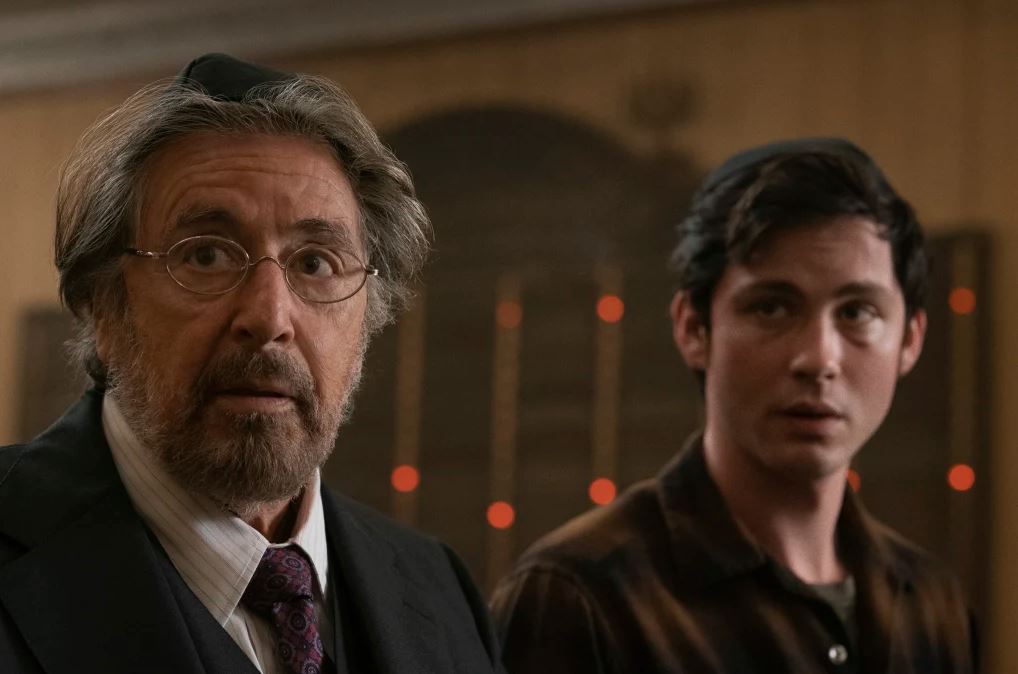There’s no doubt who the villains are in Hunters (Amazon, all episodes available now) but it’s not always easy to spot the good guys. That’s because the vigilante gang on the trail of Nazis in 1977 America have a penchant for torturing the war criminals they unearth before killing them.
Sure, that blurs the line between monster and monstered a little, but they can rationalise it away as the price to be paid for settling old scores on behalf of six and a half million Holocaust victims.
It’s heady stuff, morally and historically challenging, but with an odd dash of escapist revenge fantasy too.
With Al Pacino as chief Nazi hunter Meyer Offerman and Logan Lerman as his youngest recruit, Jonah Heidelbaum, Hunters can be mordantly, sadistically funny in its 1970s scenes. But in the wartime flashbacks it is relentlessly grim. How could it be otherwise?
It owes an enormous debt to the world of comic-book superheroes (many of whose creators were Jewish), to Tarantino’s ultra-violent Inglourious Basterds, and to the political horror-comedy mash-up of Jordan Peele (who serves as executive producer here). But the key to Hunters is the notion of memory – and the imperative of keeping it alive once victim-survivors can no longer bear witness.
“There are so many survivors who are not with us,” series creator David Weil, whose grandmother made it out of Auschwitz, has said. “The community has grown smaller and it was a love letter to my grandmother.”
Early in the movie-length first episode, Meyer gives Jonah a tour of his research facility, filled with classified files on Nazi doctors and scientists who were brought to America after the war by the US government (which really did happen), and interviews with survivors of their cruel experiments. The room is built in the shape of an upside-down ship. It is, Meyer explains, “an ark, to guard from extinction today’s endangered species – memory, truth.”
Read the article by Karl Quinn in The Sydney Morning Herald.

